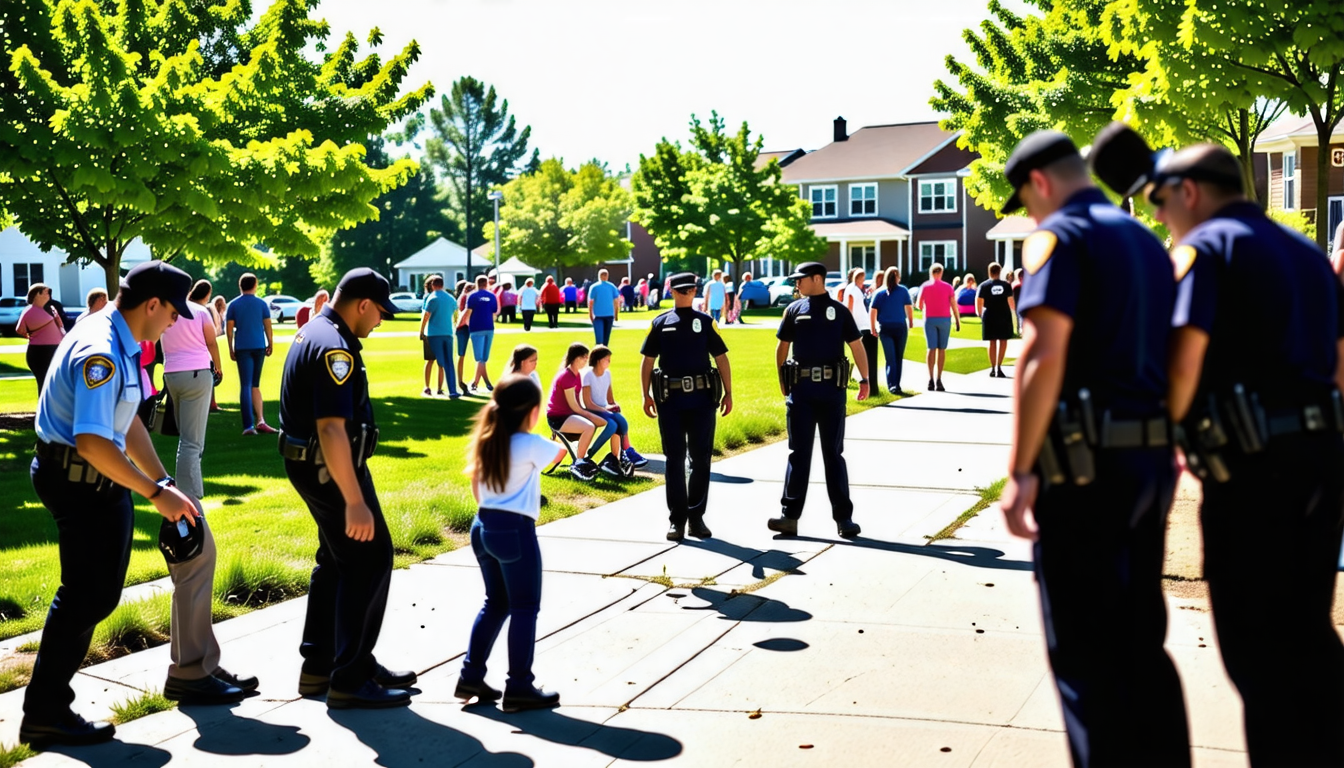|
IN BRIEF
|
In the evolving landscape of community safety, education outreach programs implemented by police in schools have emerged as a pivotal strategy for fostering a safer environment for students. These programs serve not only to engage young people but also to bridge the gap between law enforcement and the communities they serve. By utilizing creative approaches such as art, drama, and music, police can connect with students on a deeper level, addressing challenges and promoting positive behaviors. Initiatives like Drug Abuse Resistance Education (DARE) and Gang Resistance Education and Training are designed to equip youth with essential life skills and conflict resolution techniques. As these programs take root in schools, they not only enhance student safety but also cultivate lasting relationships built on trust and understanding.
Education outreach programs are essential tools for police departments aiming to create a positive connection between law enforcement and students. These programs not only serve to educate youth about safety and crime prevention but also foster trust and collaboration within the community. Various implementations across schools showcase how police can use innovative strategies to engage young minds effectively.
Additional Resources and Support
To sustain these impactful programs, police departments may seek additional resources through grants and community support. Organizations such as the COPS Office lead the way in providing funding and assistance for implementing educational outreach programs that meet community needs. These partnerships further amplify the potential for successful programs and initiatives.
Furthermore, local governments and civic organizations can play an indispensable role by promoting police outreach programs within schools. By raising awareness and advocating for the importance of these programs, a collaborative environment can be established that prioritizes the well-being of students and fosters a sense of safety.
As law enforcement continues to engage with youth through education outreach, the potential for positive change and community building remains vast.
Building Trust through Engagement
Building trust is crucial, especially in communities that may harbor skepticism towards the police. Education outreach programs serve as a bridge, allowing officers to participate in school activities such as sports events, educational workshops, and even career days. By engaging with students beyond traditional law enforcement roles, police officers can present themselves as approachable figures rather than authority figures, which is vital in fostering positive relationships.
The implementation of education outreach programs by police in schools has proven to be an effective strategy for enhancing community safety and fostering positive relationships between law enforcement and youth. Programs such as the Drug Abuse Resistance Education (DARE) and Gang Resistance Education and Training are designed to educate students about the dangers of drugs and gang involvement. According to recent studies, schools with such programs report a significant decrease in incidents related to substance abuse and violence.
Furthermore, the role of School Resource Officers (SROs) is pivotal. Research indicates that schools with SROs experience a nearly 20% reduction in crime rates. These officers act as mentors and educators, facilitating discussions on conflict resolution and promoting a safe environment for learning. They also provide invaluable resources to help students navigate challenging situations, which is essential in today’s climate.
Moreover, innovative initiatives like “Cop Scouts” and “Teen Ambassador Clubs” create interactive frameworks for students to engage with law enforcement positively. This connection not only educates young people on safety but also builds essential trust within the community. Such programs are crucial as more police departments strive to promote safety and awareness through collaborative efforts with educational institutions. For more comprehensive information, visit the resources from the Chicago Police Department and the COPS Office.
Education outreach programs implemented by police in schools play a pivotal role in fostering a safe and supportive learning environment. These programs are designed to bridge the gap between law enforcement and students, enhancing communication and promoting positive relationships. Initiatives like Drug Abuse Resistance Education (DARE) and Gang Resistance Education and Training equip students with vital skills to confront challenges they may face. Moreover, programs such as Cop Scouts and Teen Ambassador Clubs provide outlets for students to engage constructively with police officers, turning potential conflicts into cooperative efforts. By embracing creative approaches, such as using art and music, these outreach programs address students’ emotions and concerns while building trust and mutual respect in the community.
FAQ
What types of education outreach programs do police implement in schools?
R: Police departments implement a variety of educational outreach programs in schools, including conflict resolution training, mentorship programs, and safety awareness initiatives. These programs often utilize creative methods such as art, drama, and music to engage students and address negative feelings in a constructive way.
How do school resource officers contribute to educational outreach?
R: School resource officers (SROs) play a crucial role in educational outreach by providing a positive law enforcement presence in schools. They engage with students on various topics, including safety, crime prevention, and healthy decision-making, helping to build trust within the school community.
What is the purpose of police-led educational programs in schools?
R: The primary purpose of police-led educational programs is to promote crime prevention and foster a safe learning environment. These programs aim to educate students about the consequences of negative behaviors and equip them with the tools needed to make informed choices.
How are police-community partnerships beneficial for schools?
R: Police-community partnerships enhance the effectiveness of educational outreach programs by encouraging collaboration between law enforcement and school staff. This collaboration helps create tailored programs that address specific issues within the school community, leading to a more supportive and secure environment for students.
What impact do outreach programs have on student behavior?
R: Outreach programs have a significant positive impact on student behavior by promoting positive interactions between students and law enforcement. These programs help reduce instances of bullying, violence, and substance abuse, while also encouraging students to engage in healthy activities and develop strong relationships with law enforcement officers.
